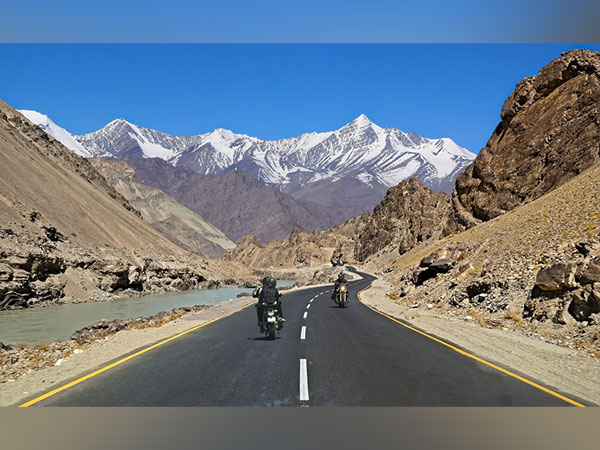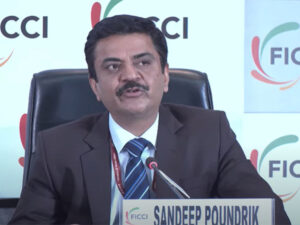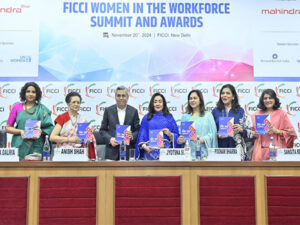
New Delhi [India], February 24 (ANI/ATK): As good as it is for travelers and the economy, unfortunately, we can’t claim that the tourism industry is leaving an equal positive impact on several tourist destinations and the environment. Ladakh being the favorite worldwide tourists location, is also feeling the unfavorable impact of tourism on its soil, resulting in excess garbage, wastage of water, noise, and air pollution while affecting the life of the local community and destroying the same habitat we all reside in before it’s too late to repair the damage.
Several travel communities have started collaborating with locals and travel companies that organize Leh Ladakh tour packages to sensitize the tourist globally by initiating campaigns related to sustainable travel in Ladakh. Ladakh is a paradise nestling heroic mountain ranges, pristine lakes, ravishing landscapes while nestling a unique culture and a rich heritage through its beautiful monasteries and stupas for an adventure traveler.
Be it a winter or summer trek, a nature trail, or just a road trip paving through its rough terrain, Ladakh charms the travelers globally with open arms and comes and experiences its wildness paired with natural beauty.
Practicing the simple environment-friendly guidelines by travelers will help maintain the long-lasting positive environmental impact on Ladakh.
Restrict plastic usage
Earth is overburdened with landfills packed with plastic waste, including bags, bottles, household items, etc. Unfortunately, the ocean is not spared and has become the dumping ground for chemical, plastic, and Solid Waste.
As per the data, India alone adds more than 34 lakh tonnes of plastic waste annually, adding to the environmental woes. Many tourists travel to famous destinations while adding to air, water, and noise pollution and exploring the local natural resources resulting in ecological disbalance.
Tourism worldwide happens to be one of the significant contributors to the increase in the carbon footprint by adding 5 per cent to the greenhouse gases.
With a biodegradable process that takes more than 100 years to process, Waste from plastic needs to be managed effectively by restricting its use apart from recycling.
* Travelers should avoid using plastic mineral water bottles and instead carry a reusable water bottle while traveling to different destinations.
* Carry cloth bags and develop the habit of reusing plastic bags instead of throwing them after every single use that is causing unnecessary wastage.
* A simple practice by eateries and restaurants to stop serving drinks with plastic straws and replace them with paper straws will go a long way in saving the planet.
Save power
Travelers should be sensible enough not to waste electricity and forget the amount of natural resiruces used to generate power.
Unnecessary wastage of power will result in excessive burning of limited fossil fuel and water, whether it’s a thermal powerplant or hydroelectric.
Travelers should follow the following tips while traveling and reduce their carbon footprint.
* Do not leave your hotel room while leaving the power appliances and gadgets in the switch-on mode.
* Go for rechargeable electrical appliances rather than battery operated to refrain from using lithium batteries that damage the environment.
* The big and small hotels or resorts should go for energy-saving solutions like using natural greenspace, ventilation, separate waste collection, and recycling units paired with suitable energy-saving practices for the resident travelers.
Water is essential
Nonetheless, more than 70 per cent of the earth is covered with water; less than 3 per cent of water can be claimed as fresh, and out of that, a small percentage is available for quenching the thirst of billions.
However, that doesn’t stop us from wasting this precious resource, in the absence of which the whole of humanity will perish.
It is high time to get sensitized and use significantly drop sensibly and not carelessly while traveling.
* For all your bathing needs, stop using the shower and start using a water bucket.
* Store the leftover water from washing vegetables, utensils, and clothes and use it for gardening and flushing needs.
* All the property owners should install rainwater harvesting or water recycling plants to manage water effectively.
* Travelers should abstain from throwing drinkable water.
* You will be shocked to know that RO water purifiers waste 30 per cent more water while purifying 1 liter. Therefore, it is highly recommended to develop a process to reuse this water for other household or commercial chores.
Solid waste management
Solid Waste has already been taking a toll on the environment costing economies to use all the available resources ineffective management and recycling of the garbage True to the old proverb, “Prevention is better than cure,” what if we start producing less solid Waste, be it travelers or natives.
Just follow the below-mentioned tips while traveling to ensure sustainable travel.
* The onus lies on travelers and hotel management to segregate natural and inorganic waste for better waste management paired with an option to use a compost pit for organic waste.
* Travelers should adopt the habit of not littering in public places and mountains and ensure they bring back the garbage while traveling to hills when trekking and camping.
* Organic waste is being used to generate electricity thanks to modern waste management technologies, and biogas facilities can be used as cooking fuel.
As a result, property owners can incorporate these practices into their daily operations and lessen the environmental impact of solid waste.
Fresh air
Traveling to the hills has become more accessible as a result of well-developed roads and infrastructure, but it has also become the leading source of air pollution.
A road trip may sound exciting, but it is not environmentally friendly. So, if you’re planning one, it’ll be better to carpool instead of commuting in various automobiles. Public transportation should also be pushed while traveling.
When visiting and discovering famous sights over short distances, additional ecologically friendly transportation options include cycling and walking. With the arrival of electric vehicles and CNG as an alternative fuel option, the use of both in place of petrol and diesel-driven vehicles should be avoided.
This story is provided by ATK. ANI will not be responsible in any way for the content of this article. (ANI/ATK)


















